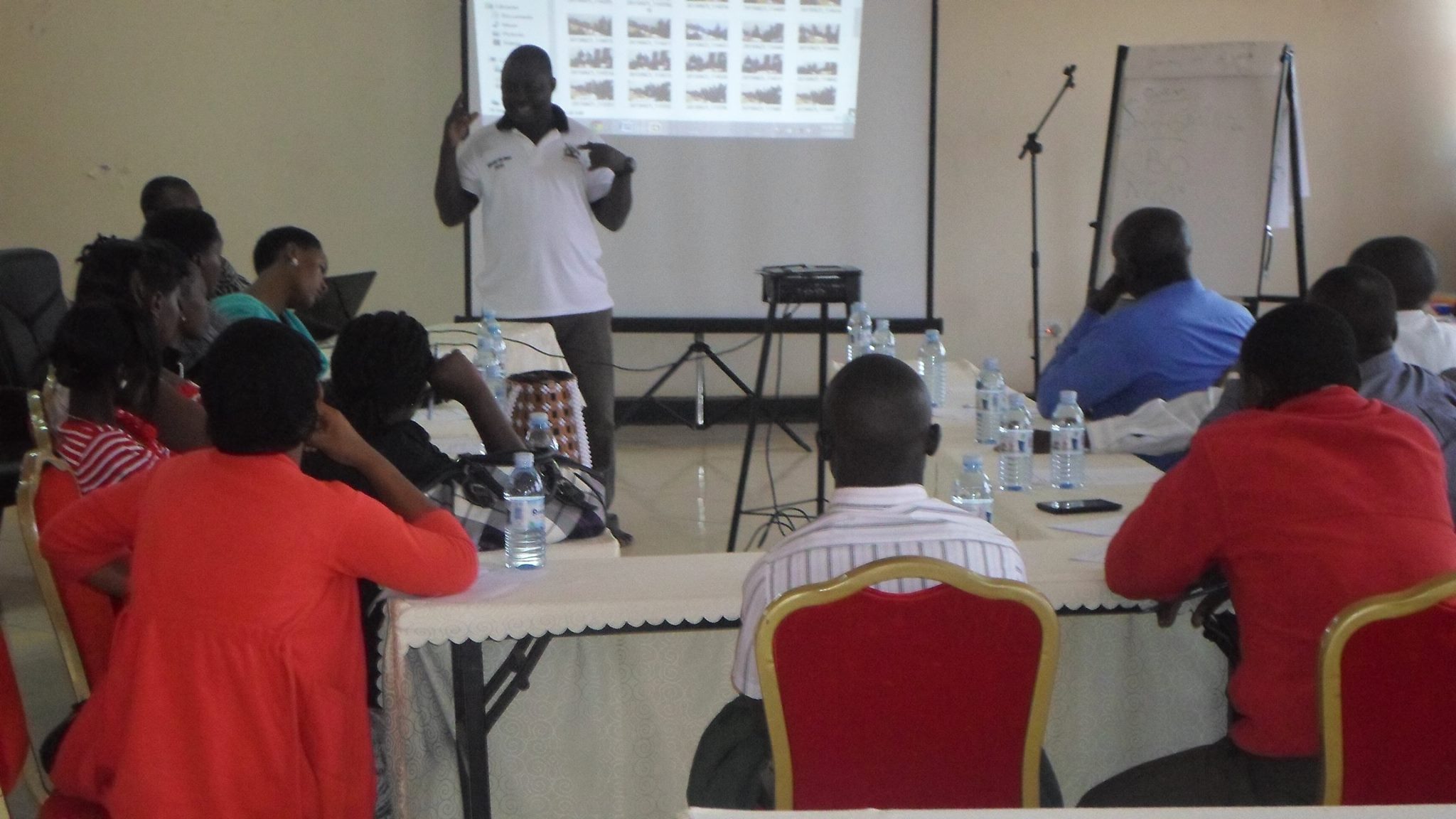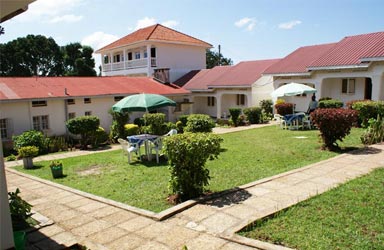Fighting AIDS with rural LGBTI, sex workers in Uganda
Colin Stewart is a 45-year journalism veteran living in Southern…

News from the front lines of Uganda’s fight against Aids among some of the nation’s most stigmatized and most at-risk groups:
- Signs of a change of heart by Ugandan government officials.
- Continued vocal opposition to LGBTI people and sex workers from conservative religious leaders, but some willingness to talk about how to stop excluding those groups from health services.
- Sex workers’ clients who insist on unsafe-sex practices that spread sexually transmitted infections (STIs), including HIV.
Those were some of the topics discussed last month with representatives of Uganda’s key affected populations (KAPs) who journeyed close to the nation’s rural western border, seeking to improve the odds of defeating Aids, malaria and tuberculosis there.
Those KAPs representatives were elected early this year to the Uganda Country Coordinating Mechanism (UCCM), which oversees health policies and programs in Uganda on behalf of the Global Fund to Fight Aids, Tuberculosis and Malaria. They are:
- Kikonyogo Kivumbi, the substantive representative on the UCCM, who speaks for LGBT people, sex workers, men who have sex with men (MSM) and intravenous drug users.
- Jude Ayebare, elected as an alternate to speak for people whose livelihoods make them vulnerable to HIV/AIDS, including fishing communities, truckers and uniformed services personnel.
Kivumbi and Ayebare went to Hoima on July 23 to meet with members of those constituencies at the Kijjungu Hill Hotel.
Ayebare told the gathering that the main objective of the meeting was to identify ways to involve KAPs in Global Fund programs and to make the best use of $246 million in grants directed to health centers for products such as drugs, condoms and mosquito nets.
Change of heart

Kivumbi said he has seen “a genuine change of heart” from government officials, who now favor offering health care to all Ugandans, especially KAPs. That’s what made possible his election as an “openly self-identifying queer person,” he said.
Although sexual minorities still face resistance from anti-gay medical personnel, especially those who work for religious organizations, Kivumbi said, “There is hope.”
“Reaching out to KAPs is now part of government policy embedded in the National Strategic Plan for HIV/Aids” with the aim of reducing HIV infections, Kivumbi said.
But stigma and anti-LGBTI rhetoric remain an obstacle, the meeting was told. STIs are a big problem for at-risk populations in and near Hoima, and many at-risk people fear going to health centers due to stigma among health-care providers. One suggestion was to identify KAP-friendly health providers or to establish a new clinic that will provide KAP-friendly service.
Regarding religious leaders’ anti-LGBTI, anti-sex-worker rhetoric, Kivumbi said that he and Ayebare “have established dialogues with religious leaders at national and regional levels to harmonise how best to offer health services to all.”
But “religious rhetoric deters KAPs from health access, especially in areas where religious-based health institutions are the main providers of health services.” Still, he said, “some progress had been made.”
He urged people to stand up for their rights in the face of bullies, especially since “Uganda now has a robust gay and sex workers movement.”
HIV-spreading sex practices
A further issue discussed at the meeting was the problem of traditional sexual practices fueling the spread of HIV.
One issue is clients refusing to allow sex workers to use condoms. “How then do we bring down the 7.3% national HIV prevalence,” Kivumbi asked.
Another issue is clients who insist on being cleaned by the sex worker after sex — even with a shared towel.
“Can’t men who worship their penises really clean themselves after sex?” Kivumbi exclaimed after the meeting. “If one man has syphilis, gonorrhea, kisipi [the name for Kaposi’s sarcoma in Uganda]… candida et al., one sex worker can infect 20 of them in a night” because of this patriarchal sex practice, he said.
Addressing any sex-work clients, Kivumbi said, “Please make it a rule to clean yourself and help us scale down STI and HIV among Key Affected Populations.”
Night visit
Kivumbi also visited sex workers at night on the streets, where he saw further evidence of the health problems they face.
“I was very touched and disturbed last night to see the poor hygiene, environment, discrimination, physical and verbal insults hurled at sex workers in Hoima town,” he said after that tour.
Religious ostracism remains a difficult obstacle.
“Many of our people report not being able to access STI management, condoms, lubricants for fear of reprisal and insults from health workers,” Kivumbi said.
He said that police were helpful, however.
“We were able to reach out to our people at night and consult without interference.”
Related articles
- Finally, an LGBT voice on Uganda’s anti-HIV panel (March 2015, 76crimes.com)
- New hope in AIDS fight: Gay, MSM Africans find their voices (May 2015, 76crimes.com)
- LGBT Ugandans to share in $226 million for health care (June 2015, 76crimes.com)
- Uganda gets $200m Global Fund grant to revamp health infrastructure (June 2015, en.starafrica.com)



Reblogged this on Fairy JerBear's Queer World News, Views & More From The City Different – Santa Fe, NM and commented:
Fighting AIDS by involving affected populations just makes sense…